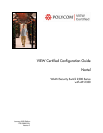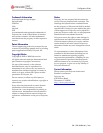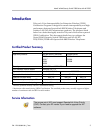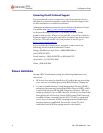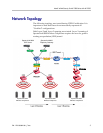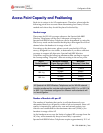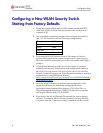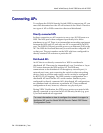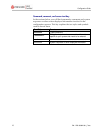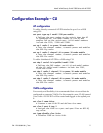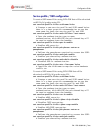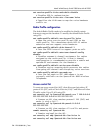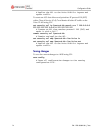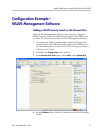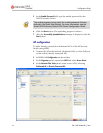
Nortel: WLAN Security Switch 2300 Series with AP-2330
PN: 1725-36082-001_F.doc
9
Connecting APs
To configure the WLAN Security Switch (WSS) to support an AP, you
must first determine how the AP will connect to the switch. There are
two types of AP-to-WSS connection: direct and distributed.
Directly connected APs
In direct connection, an AP connects to one or two 10/100 ports on a
WSS. The WSS port is then configured specifically for a direct
attachment to an AP. There is no intermediate networking equipment
between the WSS and AP, and only one AP is connected to the WSS
port. The WSS 10/100 port provides power over Ethernet (PoE) to the
AP. The WSS also forwards data only to and from the configured AP
on that port. The port numbers on the WSS which are configured for
directly attached APs reference a particular AP.
Distributed APs
An AP that is not directly connected to a WSS is considered a
distributed AP. There may be intermediate Layer 2 switches or Layer
3 IP routers between the WSS and the AP. The WSS may
communicate to the distributed AP through any network port. (A
network port is any port connecting the switch to other networking
devices, such as switches and routers, and it can also be configured
for 802.1Q VLAN tagging.) The WSS contains a configuration for a
distributed AP based on the AP’s serial number. Similar to ports
configured for directly connected APs, distributed AP configurations
are numbered and can reference a particular AP. These numbered
configurations do not, however, reference any physical port.
During VIEW Certification, the 2330 access points were tested while
directly connected to a port on the WLAN Security Switch (e.g. port
1), but both methods are supported.
For more information on how to configure the network to support a
distributed AP, see the Nortel WLAN Security Switch 2300 Series
Configuration Guide.



